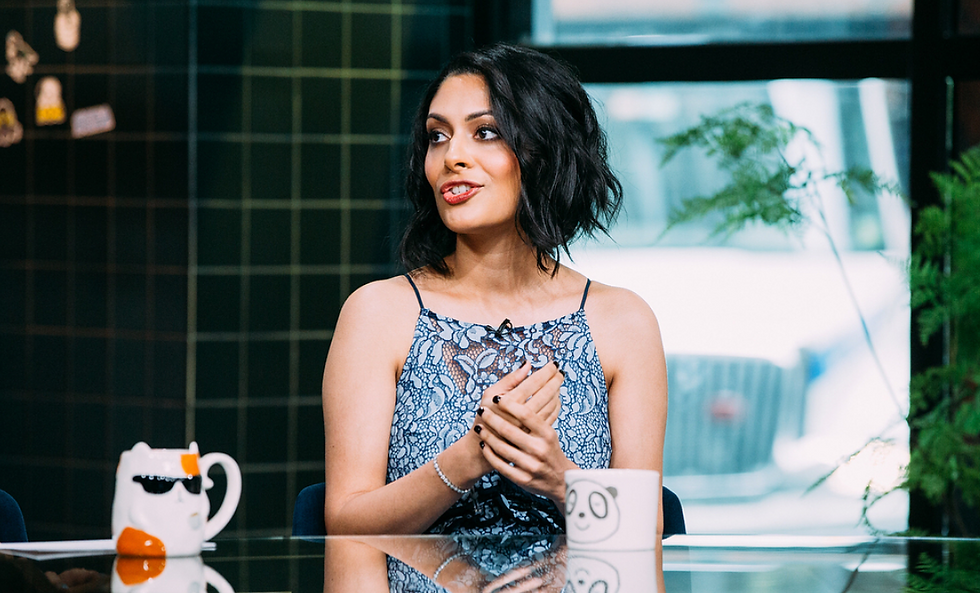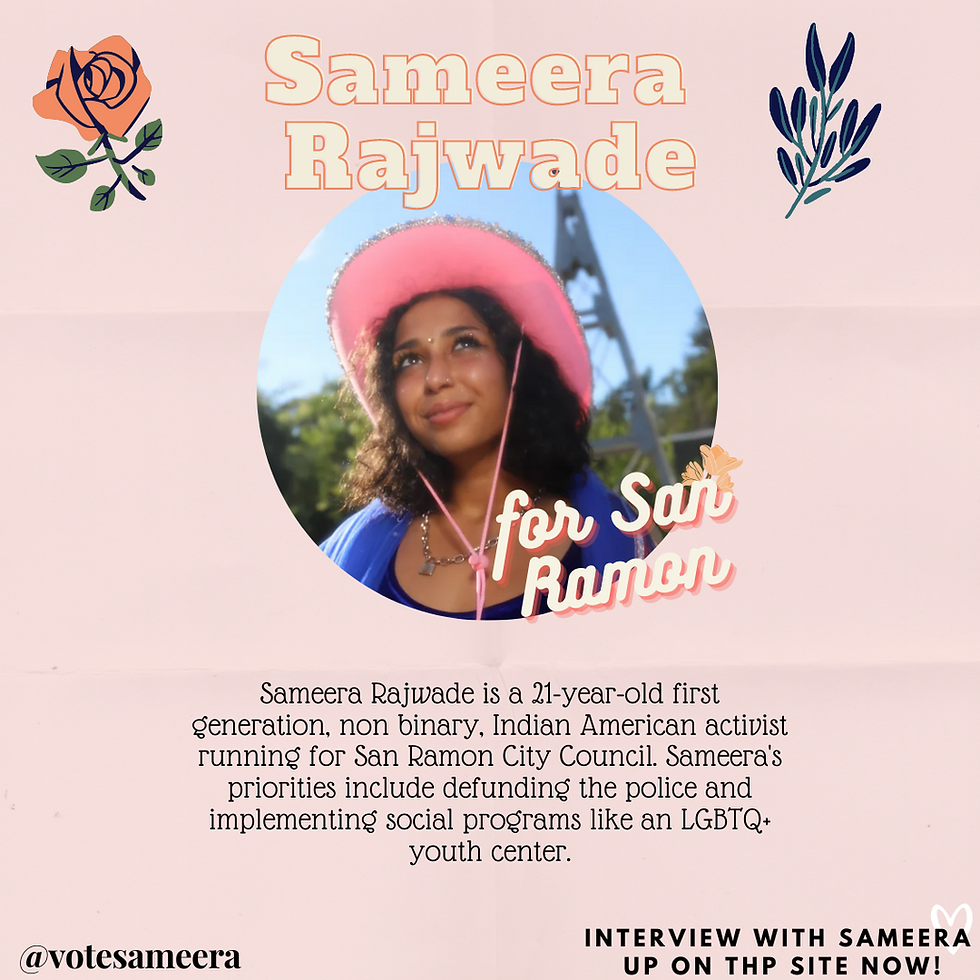Interview: The First South Asian "OITNB" Actress in Her Own Words
- Sep 1, 2018
- 4 min read
Updated: Sep 4, 2019
The Homegirl Project interviewed Reema Sampat on her journey portraying fearless South Asian characters, her new role as Shruti Chambal in Orange is the New Black, and what comes next.

MK: What was it like to make it as a South Asian actress in an industry dominated by white men?
RS: I guess I’ve been lucky enough (so far) to work with diverse women directors, writers, and producers, that “the white man” has become a minority to me. I think we can all benefit from learning from each other (no matter what your race or gender is), so long as the industry maintains a balance.
MK: Your OITNB character, Shruti Chambal, strays far from the Indian stereotype. How did you end up in that role, and what was it like to play the first Indian inmate?
RS: I only have the writers and producers to thank for creating Shruti! I am proud to represent a non-stereotypical Indian girl, for sure. One of the Indian writers of the show said it best: “We can be bad girls, too.”
MK: What was the best part about being in the cast of OITNB?
RS: The writers set up two prison blocks against each other this season. The camaraderie within our block, on and off set, was something I really treasured. All of the women were so supportive of each other, and we are all really good friends now. There’s so much love there. OITNB was also the first BIG show I was a part of, and it will always have a special place in my heart.
MK: Today, we're seeing more members of the South Asian diaspora getting their own voices, both on- and off-screen. How has this impacted you?
RS: I’d say much of my journey as an actor has been personal, rather than cultural. However, the more my career progresses, the more my culture matters to me. Seeing people like Mindy, Aziz, Hassan, Dev, and Riz just confirms that the world is open and hungry for our talent, perspectives, and story-telling. That keeps me motivated to stay in the game, even when I can get discouraged at times.

MK: Why do you believe that representation is so important on TV?
RS: There is a whole population of people that don’t see people like them on the small screen that they can relate to. It’s neglectful to underrepresent them. Beyoncé said it best in her piece for the September issue of Vogue: “If people in powerful positions continue to hire and cast only people who look like them, sound like them, come from the same neighborhoods they grew up in, they will never have a greater understanding of experiences different from their own. They will hire the same models, curate the same art, cast the same actors over and over again, and we will all lose.”
MK: What are your thoughts on how acting and activism can intersect to create change?
RS: I think success for an actor is ultimately being able to choose your own projects, specifically ones you believe will serve a greater purpose, like creating change. Tackling issues like racial and gender inequality (Joy) or domestic abuse (Enough) or even For example, at the top of my head, a movie like Blood Diamond raised so much awareness about conflict diamonds that I hope it made at least a dent in that industry.
MK: Tell us a little bit about Surina and Mel. What excites you about that project?
RS: I’m excited that people are excited about it! I’m also excited to work with my friends. Everyone brings something different to the table so it’s truly a collaborative process. Thanks Surina and Mel for creating that atmosphere!

MK: What advice would you give young aspiring actors of color?
RS: Don’t think of it as being a disadvantage. Rather, take advantage, and embrace the unique qualities that your ethnicity brings. And don’t feel like you have to settle for roles that portray your culture in a stereotypical or negative light. You have the right to say “no.” MK: Who inspires you in life?
RS: My husband. His mission is to make Puerto Rico the 51st state of the U.S. He doesn’t see anything as impossible, and that’s why he has been able to accomplish so much in his life. I find that to be extremely valuable for me in my career in an industry that can be so daunting and unpredictable at times. He’s taught me that every small step is progress, and that’s why I’ve been able to keep my head high and push through. MK: The key theme of The Homegirl Project is "female empowerment." How does this issue impact your own life?
RS: It’s strange, but I don’t often see myself at a disadvantage because of my gender. I think having confidence and knowing what you can contribute to a job or situation is key. However, now that I have a daughter, it’s important to me to teach her that the sky’s the limit. That all ceilings can and must be shattered. And that she has the ability to do that.
MK: What is one issue that you want to change about the world?
RS: Animal abuse. It disgusts me. But I think that stems from an even broader issue – kindness. I wish people would just be kinder to each other. The other day I was at the post office, and an elderly lady in a wheelchair told someone else’s crying 3-year old to shut up! These things ultimately have a domino effect on people’s lives and mental health. I try to remind myself that I don’t know what someone is going through, and to think before I speak. We should all practice that.





Comments